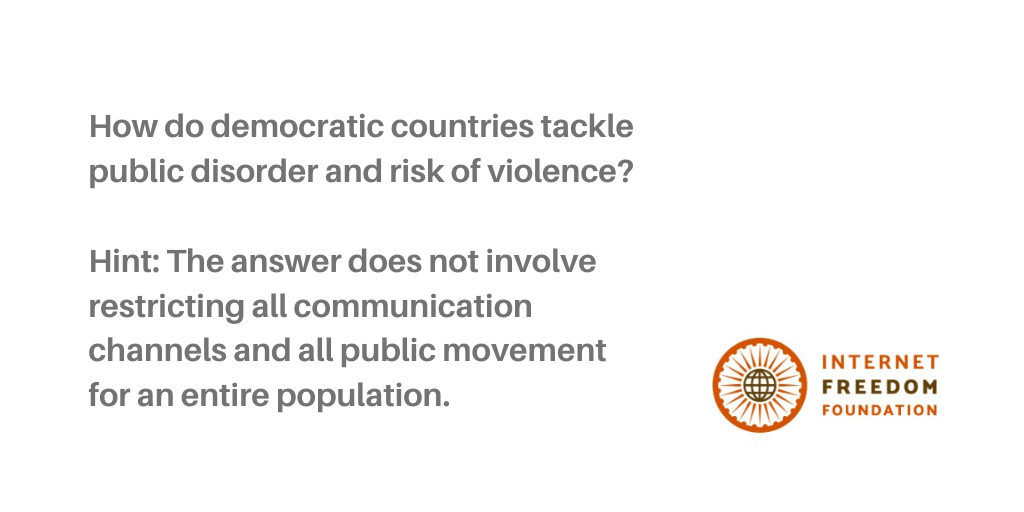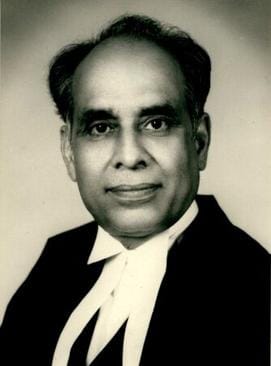
Tl;dr
In the ongoing hearings before the Supreme Court, senior advocates for the Indian Journalists Union (IJU) and the Foundation for Media Professionals (FMP) argued against the severe communication and movement restrictions imposed in Kashmir. Mr. Huzefa Ahmadi appearing on behalf of IJU compared the government’s stance in the present case to the infamous majority decision in ADM Jabalpur v. Shivkant Shukla during the Emergency. He further urged the Court to consider the proportionality of the restrictions and whether they were narrowly tailored and the least restrictive alternative available to the government. Mr. Dushyant Dave appearing for the Foundation for Media Professionals extensively cited the Constituent Assembly Debates to emphasize the Supreme Court’s role as the guardian of fundamental rights against executive action which always favours social control over individual liberty. He also relied upon a recent Kerala High Court decision and the National Telcom Policy 2012 to argue that in a digitized world where internet connectivity is necessary to access essential services, access to the internet is a fundamental right.
ADM Jabalpur: The sequel no one wants to watch
Mr. Huzefa Ahmadi, the Senior Advocate appearing for IJU, began his arguments yesterday by referring to the infamous majority decision in ADM Jabalpur v. Shivkant Shukla which is widely considered to be the darkest hour in the Supreme Court’s history. He drew parallels between the government’s affidavit and the majority reasoning in ADM Jabalpur which left fundamental rights at the mercy of executive benevolence. Interestingly, the arguments were happening in Court No. 2 where a portrait of the sole dissenting judge in ADM Jabalpur, Justice HR Khanna hangs on the walls.

Mr. Ahmadi then proceeded to explain that orders under Section 144, Code of Criminal Procedure can be passed only if there is genuine apprehension of public disorder based on material facts relating to a specific area. For instance, the government could issue orders under Section 144 for certain districts which are especially volatile but it cannot impose blanket restrictions throughout the state. He explained that security concerns would vary depending on various factors such as whether a district is close to the border etc. and the government should assess the situation in each district individually and provide specific reasons.
While discussing proportionality, Mr. Ahmadi cited the 5 judge bench decision in KS Puttaswamy v. Union of India which struck down mandatory linking of Aadhaar with bank accounts because such a requirement presumed that everyone was a money launderer. In KS Puttaswamy, the Supreme Court had held that “a mere ritualistic incantation of money laundering and black money” would not satisfy the proportionality test and justify mandatory Aadhar linkage if there were other KYC methods available. Similarly, in this case, the government could not merely cite vague national security concerns to justify such prolonged and severe restrictions on an entire population.
Who will save us from becoming a police state if not the judiciary?
Mr. Dushyant Dave, the Senior Advocate appearing for FMP, started by noting that the government had treated this case in a cavalier manner and caused significant delay despite the fundamental rights of millions of citizens being at stake. The Court then cautioned the government that the Solicitor General would have to argue as soon as the intervenors finish and no further adjournment would be granted.
Mr. Dave began by quoting from an Israeli Supreme Court decision where the judges held that enhanced interrogation techniques were not permissible in a democracy even if this means that the government must fight terrorism with one hand tied behind its back. In a democractic set-up, the government cannot resort to the same kind of tactics that terrorists do, and if such an attempt is made, it is the duty of the judiciary to strike it down. Mr. Dave then extensively quoted from the Constituent Assembly Debates to explain how the framers intended the Supreme Court to act as a bulwark against the excesses of the executive branch which is always more concerned about social control than individual liberty.
Mr. Dave further argued that the government has imposed the communication shutdown and movement restrictions to prevent people from voicing their protest against the abrogation of Article 370. He then cited the recent Hong Kong High Court decision which struck down an anti-face mask measure as disproportionate despite violent demonstrations having taken place. He cautioned the Court against accepting the government’s vague arguments about national security which lack any material basis because it would set a dangerous precedent. He argued that similar restrictions could next be imposed in states with high Naxalite presence and the Court must intervene to prevent India from becoming a police state.
Mr. Dave cited several cases to establish that the fundamental right to life under Article 21 must be interpreted broadly to include the right to access the internet. He relied upon a recent Kerala High Court decision and the National Telcom Policy 2012 to argue that in a digitized world, internet connectivity is a basic need like health or education. He concluded his arguments by asking the Court to evaluate the restrictions based on the situation prevailing in Kashmir in August, and not in November when some of the restrictions have been eased. He also criticised the government’s practice of submitting material evidence in sealed covers because petitioners can never meet a case they do not know.
Rolling Credits
IJU was represented by Senior Advocate, Mr. Huzefa Ahmadi, Advocate on Record, Mr. Shadan Farasat, and Advocates, Jahnavi Sindhu and Shruti Narayan. FMP was represented by Senior Advocate, Mr. Dushyant Dave, Advocate on Record, Astha Sharma, and Advocates, Apar Gupta, Vrinda Bhandari, Kajal Dalal, Abhishek Manchanda and Devdutta Mukhopadhyay.
Various news outlets such as Live Law, Bar and Bench and the Quint have published excellent detailed reports about the hearings in the case, and you should definitely check them out as well.
The next date of hearing in the case is Thursday, 21 November 2019 where Senior Advocate, Ms. Meenakshi Arora will continue arguments on behalf of a Kashmir based lawyer who has also intervened in the case. After Ms. Arora concludes, the Solicitor General will begin arguments for the government.
Important Documents
- Written Submissions filed by FMP (link)
